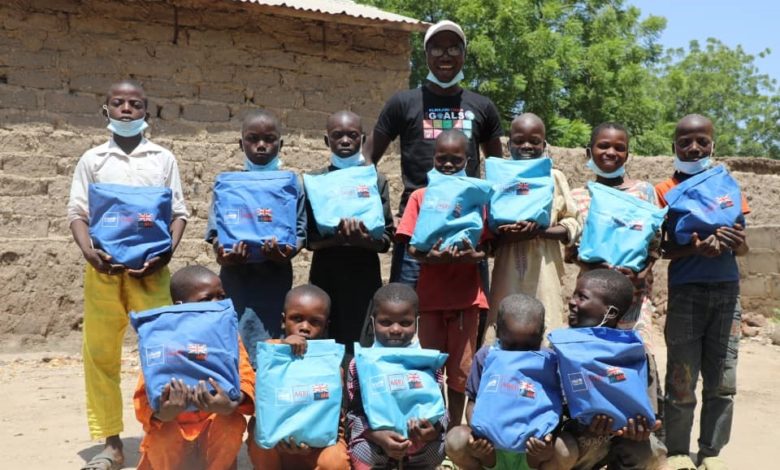Almajirai Returning to Streets After Repatriation – NGO

The Almajiri Child Right Initiative (ACRI) is concerned over failure to fully reintegrate some repatriated almajirai across northern Nigeria and as such, they are returning to the street with their begging bowls.
The Executive Director of the ACRI, Muhammad Sabo Keana, expressed worry over the development while distributing palliatives to the 214 repatriated almajirai in Sokoto and Kaduna States.
The informal Alamjiri schools in northern Nigeria take children of primary school age to teach them Quranic recitation but the children are left to look for what to eat at tender ages.
ACRI partners with UNICEF for the reintegration and reunification of alamjirai who were taken back to their communities after state governments banned their schooling system at the height of the COVID-19 pandemic.
“Many have returned to almajiri practice in Niger and elsewhere because parents are tired of seeing children doing nothing at home,” Keana said.
During investigations in Kano State, HumAngle found that the Alamjiri schools continued to hold despite the ban. Some of the children were also seen roaming around the city and begging.
Keana said that ACRI was tracking almajirai who were returned from various states in northern Nigeria, including Kano, Niger and Jigawa, and supported their reintegration.
The non-profit distributed bags of rice, beans, cartons of spaghetti, “dignity kit” that included shoes and clothes to the children in 15 communities of Sokoto and Kaduna states.
According to the Executive Director of the ACRI, the organisation will continue to support the reintegration of the repatriated almajirai to ensure their safety, education and general wellbeing.
He said, “ACRI’s next step is to work with the community and government to ensure the continued education of the repatriated almajirai.”
Some parents of the children had expressed their happiness and promised to take their children to formal schools if the government would build the schools in their communities, Keana noted.
Support Our Journalism
There are millions of ordinary people affected by conflict in Africa whose stories are missing in the mainstream media. HumAngle is determined to tell those challenging and under-reported stories, hoping that the people impacted by these conflicts will find the safety and security they deserve.
To ensure that we continue to provide public service coverage, we have a small favour to ask you. We want you to be part of our journalistic endeavour by contributing a token to us.
Your donation will further promote a robust, free, and independent media.
Donate HereStay Closer To The Stories That Matter




